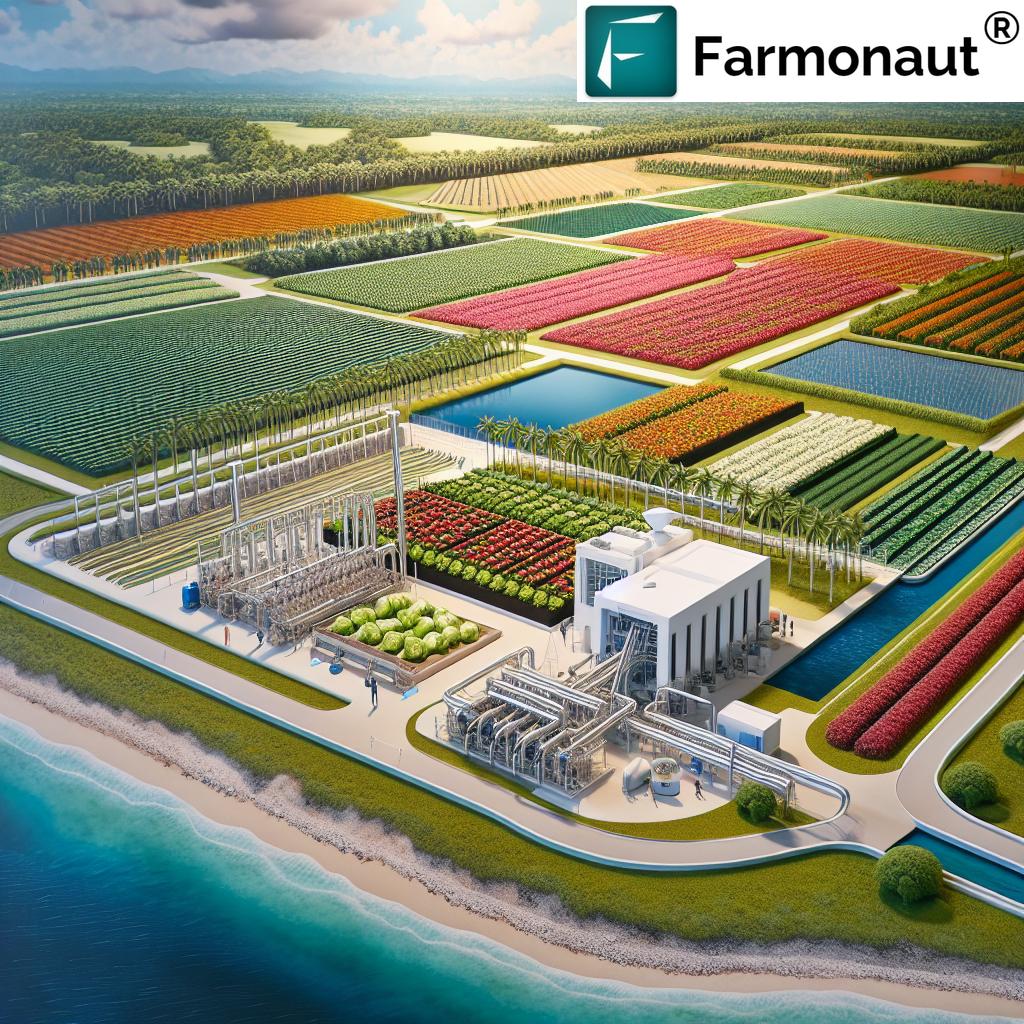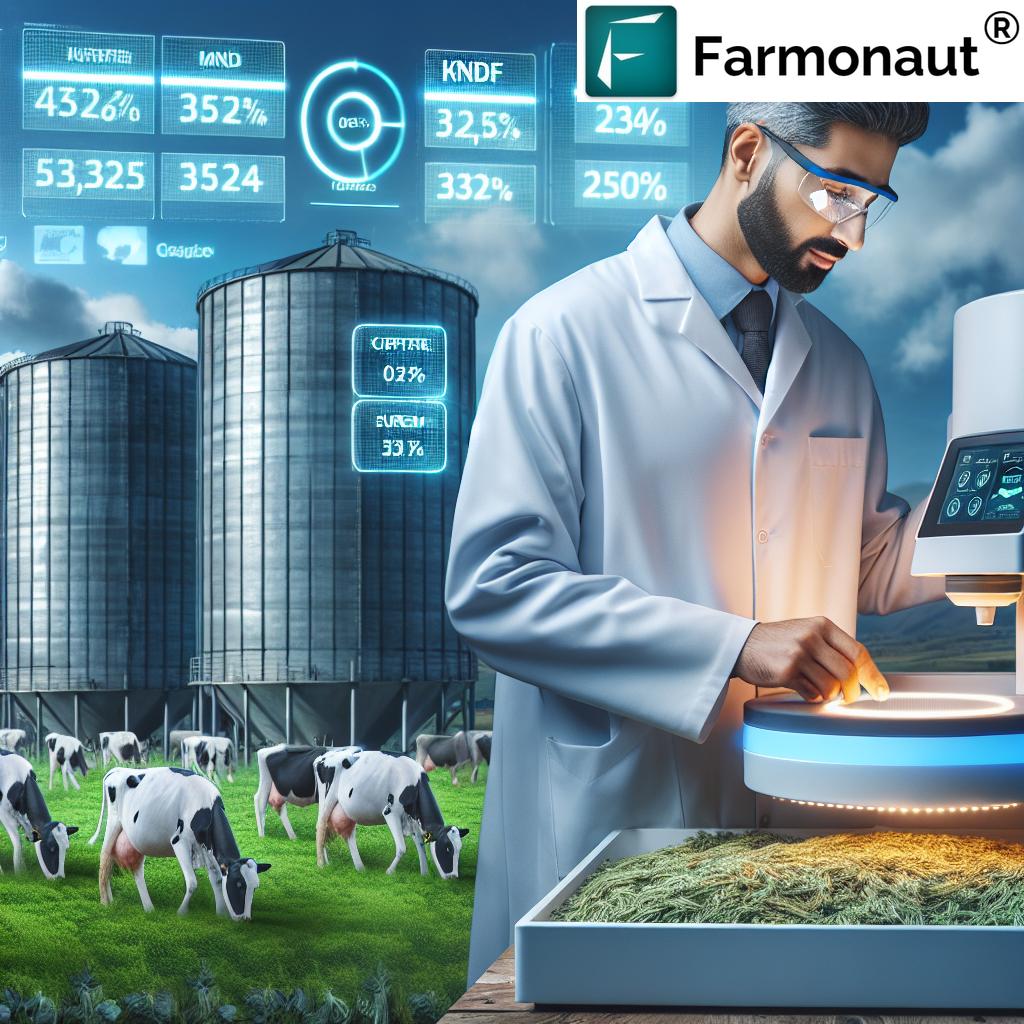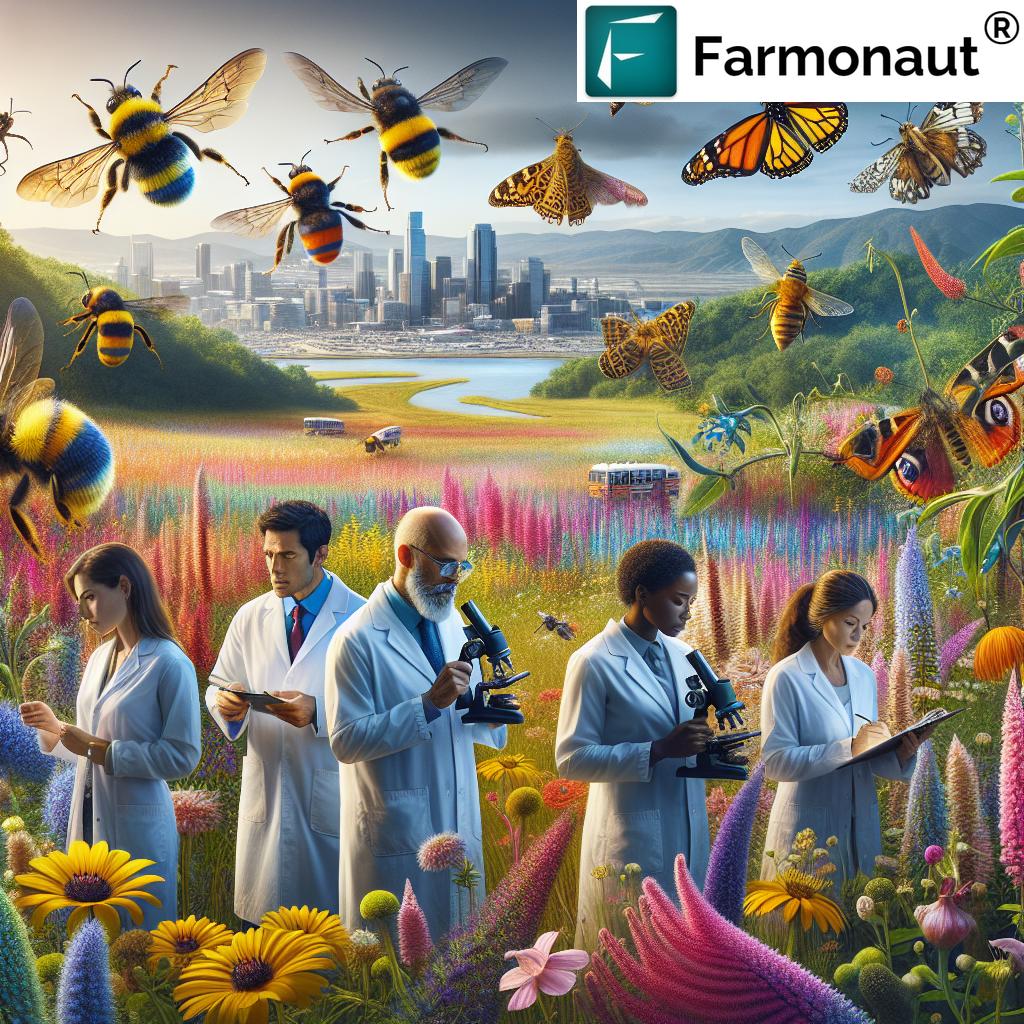Revolutionizing Chickpea Farming: Sustainable Genetic Solutions for Disease Resistance in U.S. Agriculture
“Desi chickpea varieties show natural resistance to Pythium ultimum, potentially reducing fungicide use by up to 50% in chickpea farming.”
In the heart of America’s agricultural landscape, a groundbreaking revolution is taking root. As we delve into the world of chickpea farming, we uncover a story of innovation, sustainability, and resilience that promises to reshape the future of food production in the United States and beyond. Our journey begins in the fertile fields of Madison, WI, where cutting-edge agronomy research is paving the way for a new era of sustainable agriculture practices.
At the forefront of this agricultural renaissance is the humble chickpea, a versatile legume that has captured the attention of scientists and farmers alike. The focus of our exploration today is the development of chickpea disease resistance through innovative genetic solutions, a breakthrough that holds the potential to transform not only chickpea cultivation but the broader landscape of crop production in America.
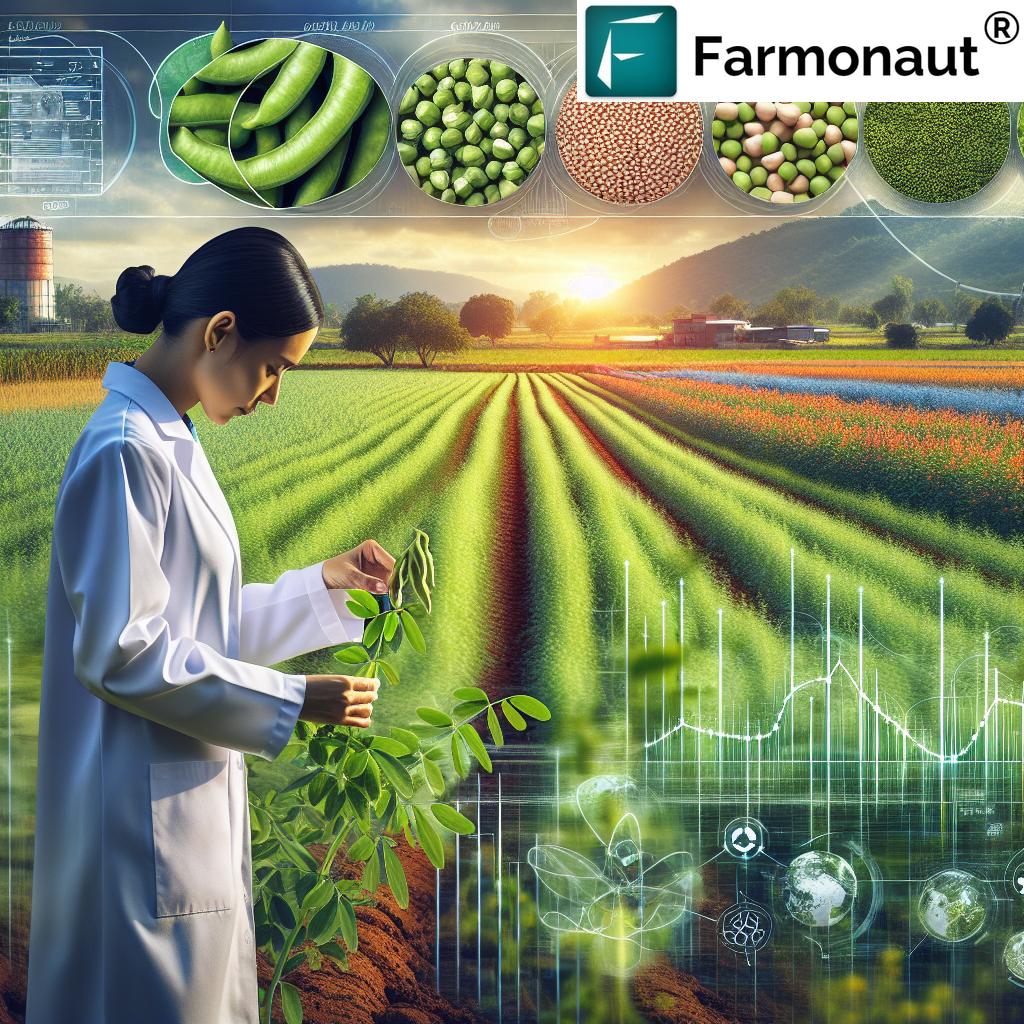
The Chickpea Challenge: Confronting Soil-Borne Pathogens
Chickpeas, also known as garbanzo beans, have long been a staple in global cuisine and are increasingly gaining popularity in the United States. However, the cultivation of this nutritious legume faces significant challenges, particularly from soil-borne pathogens that threaten crop health and yield. Among these formidable foes, Pythium ultimum stands out as a particularly destructive water mold, capable of devastating chickpea crops and jeopardizing food security on a global scale.
The traditional approach to combating such pathogens has relied heavily on chemical fungicides. While effective in the short term, this method raises concerns about environmental sustainability, soil health, and the long-term viability of agricultural systems. As we confront the realities of climate change and its impact on agriculture, the need for more sustainable, resilient farming practices has never been more urgent.
Genetic Breeding: A Sustainable Solution for Crop Resilience
Enter the world of genetic breeding – a scientific frontier that holds the key to developing crops with natural resistance to diseases. Our research has led us to a groundbreaking discovery: desi chickpea varieties that exhibit inherent resistance to Pythium ultimum. This revelation opens up a world of possibilities for sustainable chickpea production, promising to reduce reliance on chemical interventions while bolstering crop resilience.
The implications of this discovery extend far beyond the realm of chickpea farming. By harnessing the power of genetic breeding, we’re not just addressing a single crop issue; we’re laying the groundwork for a broader shift towards sustainable food production across various legumes and other crop types.
The Science Behind Chickpea Disease Resistance
To fully appreciate the significance of this breakthrough, let’s delve into the scientific intricacies of chickpea disease resistance. The process of developing resistant varieties involves a meticulous blend of traditional breeding techniques and cutting-edge genetic analysis.
- Genetic Mapping: Scientists identify specific genes or genetic markers associated with disease resistance in chickpea plants.
- Selective Breeding: Plants with desirable traits are carefully crossed to produce offspring with enhanced resistance.
- Field Trials: Newly developed varieties undergo rigorous testing in various environmental conditions to ensure their resilience and performance.
- Molecular Analysis: Advanced techniques like gene sequencing help researchers understand the precise mechanisms of resistance at a molecular level.
This comprehensive approach to crop genetics not only enhances disease resistance but also contributes to overall plant health and productivity. The result is a more robust chickpea crop that can thrive in challenging conditions while requiring fewer chemical inputs.
Environmental and Economic Benefits of Genetic Resistance
The adoption of genetically resistant chickpea varieties offers a multitude of benefits that align perfectly with the goals of sustainable agriculture:
- Reduced Chemical Usage: By naturally resisting diseases, these chickpea varieties significantly decrease the need for fungicides, leading to cleaner soils and water systems.
- Improved Soil Health: Less reliance on chemicals promotes a healthier soil microbiome, enhancing overall soil fertility and structure.
- Enhanced Biodiversity: A reduction in pesticide use supports beneficial insects and microorganisms, contributing to a more balanced ecosystem.
- Economic Advantages: Farmers benefit from reduced input costs and potentially higher yields, improving the economic viability of chickpea cultivation.
- Climate Resilience: Genetically resistant crops are better equipped to withstand the stresses associated with changing climate patterns.
“Genetic breeding for disease resistance could increase chickpea crop yields by 20-30% while promoting sustainable agriculture practices.”
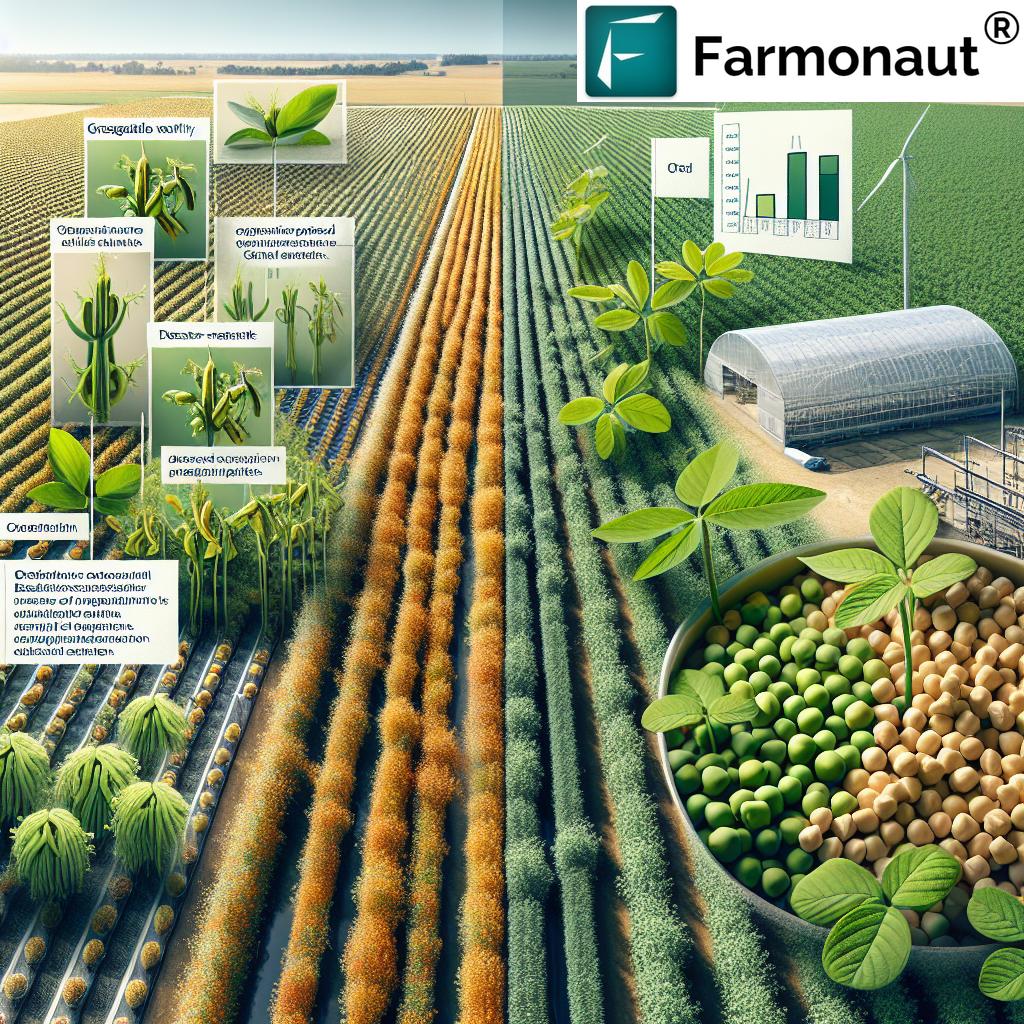
Comparative Analysis of Chickpea Varieties
To better understand the impact of genetic resistance in chickpea varieties, let’s examine a comparative analysis of different cultivars:
| Chickpea Variety | Resistance to Pythium ultimum | Resistance to Other Pathogens | Estimated Yield Improvement | Reduction in Fungicide Use | Sustainability Score (1-10) |
|---|---|---|---|---|---|
| Desi Type A | High | Medium | 25% | 45% | 8 |
| Desi Type B | High | High | 30% | 50% | 9 |
| Kabuli Type A | Medium | Low | 15% | 30% | 6 |
| Kabuli Type B | Medium | Medium | 20% | 35% | 7 |
| Hybrid Type A | High | High | 28% | 48% | 9 |
This table clearly illustrates the significant advantages of genetically resistant chickpea varieties, particularly the Desi types, in terms of disease resistance, yield improvement, and overall sustainability.
Expanding the Scope: From Chickpeas to Global Food Security
While our focus has been on chickpeas, the implications of this research extend far beyond a single crop. The principles and techniques developed in this study have the potential to revolutionize plant disease management across a wide range of legumes and other important food crops.
Consider the following applications:
- Lentils and Peas: Similar legumes that face comparable pathogen challenges could benefit from adapted genetic resistance strategies.
- Soybeans: As a major global crop, enhancing soybean resistance could have far-reaching impacts on food and feed production.
- Wheat and Rice: Staple grains could see improved resilience against fungal diseases, bolstering global food security.
By extending these sustainable genetic solutions to other crops, we’re not just improving individual farming practices; we’re contributing to a more resilient and sustainable global food system.
The Role of Technology in Sustainable Agriculture
As we venture into this new era of sustainable farming, technology plays a crucial role in implementing and optimizing these genetic advancements. Precision agriculture tools, such as those offered by Farmonaut, complement genetic breeding efforts by providing farmers with data-driven insights to maximize crop health and yield.
Farmonaut’s satellite-based farm management solutions offer several key benefits:
- Real-time Crop Monitoring: Farmers can track the health of their genetically resistant chickpea crops with unprecedented accuracy.
- Early Disease Detection: Advanced imaging technology can identify potential disease outbreaks before they become visible to the naked eye.
- Resource Optimization: Precise data on soil moisture and nutrient levels allows for more efficient use of water and fertilizers.
- Climate Adaptation: Weather forecasting and historical climate data help farmers make informed decisions in the face of changing weather patterns.
By integrating genetic advancements with cutting-edge technology, we’re creating a powerful synergy that drives agricultural sustainability to new heights.
Explore Farmonaut’s innovative solutions:
Challenges and Future Directions
While the progress in developing disease-resistant chickpea varieties is promising, we must acknowledge the challenges that lie ahead:
- Evolving Pathogens: As we develop resistant crops, pathogens may also evolve, necessitating ongoing research and development.
- Regulatory Hurdles: Introducing new crop varieties requires navigating complex regulatory frameworks to ensure safety and efficacy.
- Farmer Adoption: Educating and encouraging farmers to transition to new varieties is crucial for widespread implementation.
- Maintaining Genetic Diversity: It’s essential to preserve a wide range of genetic resources to ensure future breeding potential.
To address these challenges, continued investment in agricultural research and development is paramount. Collaboration between scientists, farmers, policymakers, and technology providers will be key to driving innovation and ensuring the successful implementation of sustainable farming practices.
The Path Forward: Integrating Genetics, Technology, and Sustainable Practices
As we look to the future of chickpea farming and agriculture as a whole, it’s clear that a multifaceted approach is necessary. The integration of genetic solutions, advanced technology, and sustainable farming practices offers a powerful framework for addressing the challenges of modern agriculture.
Key strategies for moving forward include:
- Continued Research: Investing in ongoing genetic research to stay ahead of evolving pathogens and climate challenges.
- Technological Integration: Leveraging advanced tools like Farmonaut’s satellite-based solutions to optimize crop management and resource use.
- Farmer Education: Developing comprehensive programs to train farmers in the implementation of new varieties and sustainable practices.
- Policy Support: Advocating for policies that incentivize the adoption of sustainable farming methods and support agricultural research.
- Global Collaboration: Fostering international partnerships to share knowledge and resources in the pursuit of global food security.
By embracing this holistic approach, we can create a more resilient, sustainable, and productive agricultural system that benefits farmers, consumers, and the environment alike.
Conclusion: A Sustainable Future for Chickpea Farming and Beyond
The groundbreaking research into chickpea disease resistance represents more than just a scientific achievement; it’s a beacon of hope for the future of sustainable agriculture. By harnessing the power of genetic breeding and integrating it with advanced technologies, we’re opening doors to a new era of farming – one that prioritizes environmental stewardship without compromising productivity.
As we continue to face the challenges of climate change and growing global food demand, innovations like these provide a roadmap for creating a more sustainable and secure food system. The journey from laboratory to field is complex, but with continued research, collaboration, and technological advancement, we’re well on our way to revolutionizing not just chickpea farming, but agriculture as a whole.
The future of farming is here, and it’s rooted in the perfect balance of nature’s resilience and human innovation. Together, we can cultivate a world where sustainable practices and bountiful harvests go hand in hand, ensuring a healthier planet and a well-fed population for generations to come.
FAQ: Sustainable Genetic Solutions for Chickpea Farming
Q1: What is the main benefit of genetically resistant chickpea varieties?
A1: The primary benefit is natural resistance to diseases like Pythium ultimum, reducing the need for chemical fungicides and promoting sustainable farming practices.
Q2: How does genetic breeding differ from genetic modification (GMO)?
A2: Genetic breeding involves selecting and crossing plants with desirable traits naturally, while genetic modification introduces foreign DNA into an organism’s genome.
Q3: Can these techniques be applied to other crops?
A3: Yes, the principles of genetic breeding for disease resistance can be applied to various crops, including other legumes, grains, and vegetables.
Q4: How does climate change impact chickpea farming?
A4: Climate change can alter rainfall patterns, temperature ranges, and pest populations, making disease-resistant and climate-adaptable varieties crucial for future food security.
Q5: What role does technology play in implementing these genetic solutions?
A5: Technology, such as Farmonaut’s satellite-based solutions, complements genetic advancements by providing precise data for crop management, disease detection, and resource optimization.
For more information on how Farmonaut’s technology can support sustainable farming practices, visit our API page or explore our API Developer Docs.














